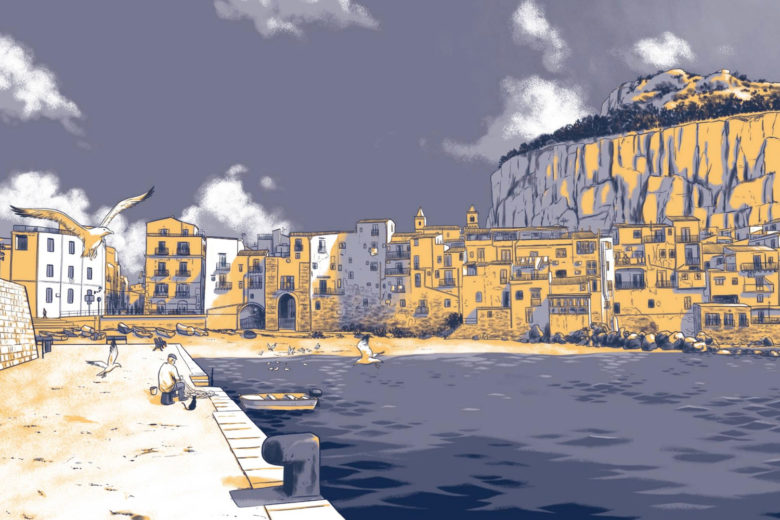Matteo Guarnaccia, project creator (presented at Centro Zō of Catania), had a peculiar intuition: comparing different cultures’ habits through one of the most daily objects that there is. He said: «I don’t mean to represent the involved countries, but to create an object which tells a story»
This young and cosmopolitan guy from Catania has always been interested in globalization and through design he found a way to examine cultural differences of eight people. The main idea of his project Cross Cultural Chairs is based on the realization of eight unique chairs, which contain soul and style of eight countries having a strong cultural identity. To this end, Mexico, Brazil, Nigeria, Russia, Indonesia, India, China and Japan will be evaluated by his creativity, concentrating the whole experience into the production of the undisputed design queen: chair.
INSIDE THE PROJECT. Matteo told us how the idea of chair as culture marker came up: «The project concerns people more than chairs, it is a socio-cultural survey on the way these people sit, eat, talk and, ultimately, live». Cross Cultural Chairs aims to valorize topics and main reasons of certain parts of the world to preserve their uniqueness, but above all, it aims to understand the real extent of globalization on daily life and design. The perfect example is the discontinuous relationship between some Asian countries, especially China, and chairs, which have been unrecognized, then adopted, abandoned and approved again. The fact that a large part of the world population, during a pre-globalization era, sat on the ground is significant. But I don’t mean to represent the involved countries, for example Brazil or Nigeria, through the creation of a chair. The purpose is to tell my personal experience, conveying it to art production and capturing so my Brazil or my Nigeria». The hope is that the creation of eight design pieces, which are rare because they are unique and original, can develop into an iconic production that recognizes him as a designer at international level. «But what I really want is create an object which tells a story». Therefore, the project develops through the collaboration of eight design studios, one for each country, that have the task of assisting the artist in his work, directing him towards the best artisans and guiding him to the creative process through the choice of materials and techniques to draw from. «It is a process involving the meeting between artisan and industrial dimensions, in addition to a triangular relationship between me, studio and local reality», said the young designer. Matteo Guarnaccia looks to masters and new personalities of the current international design scene, addressing to Brunno Jahara’s Jahara Studio (Brazil), Studio José de la O (Mexico), Mikiya Kobayashi, spokesperson of Japanese minimalism, Studiohiji (Indonesia), Studiowu (China), architect Anupama Kundoo (India), Crosby Studios (Russia) and finally Nmbello Studios (Nigeria). His nonprofit initiative aims to the exhibition of these eight chairs at Design Museum of Barcelona before the end of 2019, in addition to the realization of a documentary and even of a book in collaboration with Albert Romagosa Studio, characterized as a corollary of this experience situated in four continents.
CROWDFUNDING. The project is partly financed by sponsors, like European Design Institute of Barcelona, OELLE foundation and Design Museum of Barcelona, but it also provides for the launch of a crowdfunding campaign through Kickstarter.com with the ambitious purpose to reach € 14,000. To conquer more supporters, Matteo presented his idea at Arts Santa Monica of Barcelona and in his hometown within a month. He chose Zō Centro Culture Contemporanee (Catania) as favorite location explaining that «Sicily is a special place: it is my homeland and my starting point». And that is why his articles, like Modern Baroque, deeply concern Sicilian socio-cultural dynamics. He has also relations with some local artisans, especially with a small shop in Catania, which is specialized in chairs creation, at this point, overstepped by large-scale industrial production. He considers paradoxical the fact that «there is a great resumption of artisanal small shops in New York, whereas here it continues to be a faint reality», almost an endangered one. For Matteo Sicily is not only his homeland, but an opportunity to see how globalization process can even reach this lonely island, which he has always considered as detached from the world. Nowadays it is an occasion for new observations and a positive revaluation of the place where he grew up. For him it is no longer a place to leave, but where come back, inviting us to sit and think about.
Translated into English by Daniela Marsala



